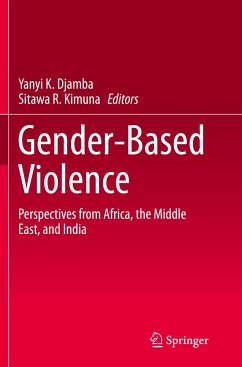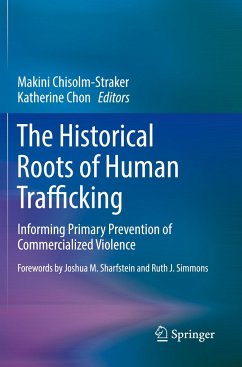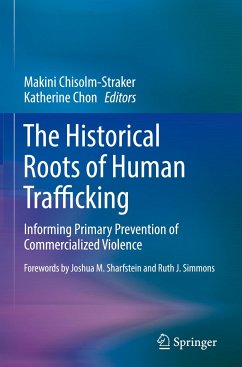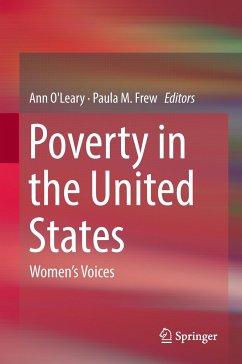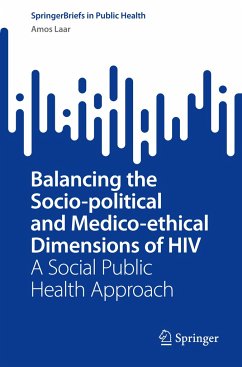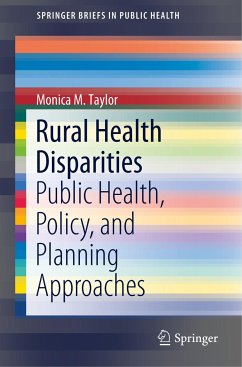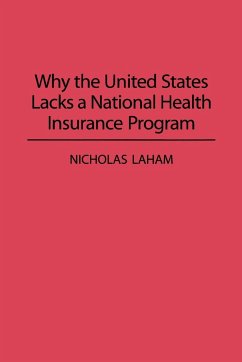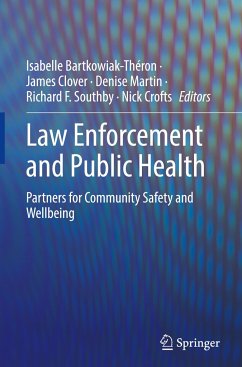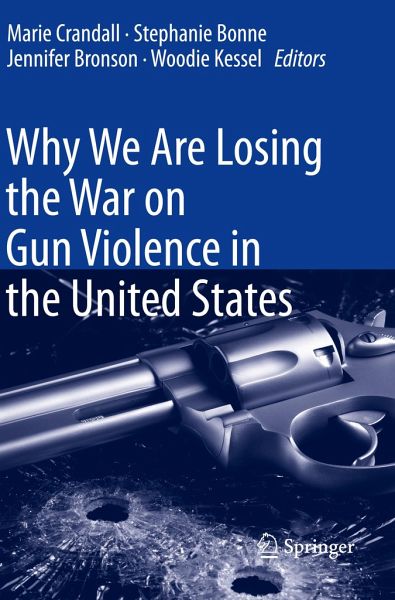
Why We Are Losing the War on Gun Violence in the United States
Versandkostenfrei!
Versandfertig in 1-2 Wochen
49,99 €
inkl. MwSt.

PAYBACK Punkte
25 °P sammeln!
This edited collection of data and perspectives takes a fresh approach to gun violence prevention by addressing the question, "why are we losing the war on gun violence in America?" Although successes and failures in the prevention of gun violence are examined, it is a war we are losing, due to restrictions on research funding, entrenched historical perspectives, structural violence, and perhaps differing priorities or views on what is right or wrong.Gun violence is a public health crisis. It remains politicized and has been paralyzed with inaction. In the chapters, the authors write candidly ...
This edited collection of data and perspectives takes a fresh approach to gun violence prevention by addressing the question, "why are we losing the war on gun violence in America?" Although successes and failures in the prevention of gun violence are examined, it is a war we are losing, due to restrictions on research funding, entrenched historical perspectives, structural violence, and perhaps differing priorities or views on what is right or wrong.
Gun violence is a public health crisis. It remains politicized and has been paralyzed with inaction. In the chapters, the authors write candidly about the challenges that have thwarted gun violence prevention, as well as highlight possible strategies for progress to save lives. Critical areas explored among the chapters include:Gun Violence, Structural Violence, and Social JusticeSchool Shootings: Creating Safer SchoolsMental Illness and Gun ViolenceUnderstanding the Political Divide in Gun Policy SupportThe Second Amendment and the War on GunsThe Impact of Policy and Law Enforcement Strategies on Reducing Gun Violence in AmericaYouth Gun Violence Prevention OrganizingSmart Guns Don't Kill PeopleWith this compendium, the editors and authors hope to bridge the growing gap between groups or ideologies, and create common ground to discuss workable solutions. Why We Are Losing the War on Gun Violence in the United States is essential reading for a broad audience including practitioners, academics, researchers, students, policy-makers, and other professionals in public health, behavioral sciences (including social work and psychology), social sciences, health sciences, public policy, political science, and law, as well as any readers interested in the path to decreasing gun violence in America.
Gun violence is a public health crisis. It remains politicized and has been paralyzed with inaction. In the chapters, the authors write candidly about the challenges that have thwarted gun violence prevention, as well as highlight possible strategies for progress to save lives. Critical areas explored among the chapters include:Gun Violence, Structural Violence, and Social JusticeSchool Shootings: Creating Safer SchoolsMental Illness and Gun ViolenceUnderstanding the Political Divide in Gun Policy SupportThe Second Amendment and the War on GunsThe Impact of Policy and Law Enforcement Strategies on Reducing Gun Violence in AmericaYouth Gun Violence Prevention OrganizingSmart Guns Don't Kill PeopleWith this compendium, the editors and authors hope to bridge the growing gap between groups or ideologies, and create common ground to discuss workable solutions. Why We Are Losing the War on Gun Violence in the United States is essential reading for a broad audience including practitioners, academics, researchers, students, policy-makers, and other professionals in public health, behavioral sciences (including social work and psychology), social sciences, health sciences, public policy, political science, and law, as well as any readers interested in the path to decreasing gun violence in America.



